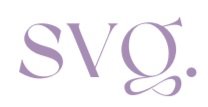Improve Your Financial Literacy For a Healthier, Fulfilling Life
Photo by Content Pixie on Unsplash
As a Latina woman and a single mom, I know firsthand how crucial financial literacy for women is. Unfortunately, financial education isn’t something many of us grow up with. Instead, we’re often handed patronizing financial advice, if we’re given any guidance at all.
Financial education is self-care. Normalizing conversations around finances is about taking ownership of our lives, creating opportunity, and breaking the cycle of financial instability, especially for women and communities of color.
Why Financial Literacy Matters for Women
Financial literacy is the ability to understand and manage your personal finances. It includes budgeting, saving, managing debt, investing, using credit responsibly, and planning for the future.
Without financial literacy, we risk staying stuck in patterns that limit our growth and security. But by learning how money works, we gain the confidence and knowledge to take control, for ourselves and future generations.
For women, this often means challenging the societal idea that finances are a "masculine" concern.
What Is Financial Literacy?
Financial literacy is your foundation for making smart money decisions. If you're financially literate, you likely:
Understand your household income and expenses
Can manage and pay off debt
Know how to use a credit card responsibly
Actively save for short-term and long-term goals
Have a retirement plan and investment strategy
Improving your financial literacy means creating a healthy relationship with money.
How to Improve Your Financial Literacy: A Step-by-Step Guide
Whether you're just starting or getting back on track (like I am), here’s how you can build a solid financial foundation to make informed decisions that will have an impact on your quality of life:
1. Date Your Money
This is your first step in financial self-care. Just like you would with a partner, get to know your money.
Schedule time each month to review your finances, make it enjoyable with a warm latte or glass of wine.
Review your bank accounts, bills, credit card statements, and spending habits.
This approach turns money management into a monthly ritual of self-awareness and empowerment.
2. Get Your Money Organized
Financial clarity starts with organization. Here's how to do it:
Write down all of your income sources and monthly expenses.
List your debts, including interest rates and minimum payments.
Create a financial spreadsheet to track it all each month.
This will give you a clear picture of your financial starting point.
3. Set Clear, Sustainable Financial Goals
With a better understanding of your cash flow, it’s time to set realistic goals:
Prioritize your essential expenses: housing, food, utilities, and transportation.
Create categories for saving, debt repayment, and spending on things that bring you joy.
Don’t forget to plan for retirement, even if you’re starting small.
Align your goals with your personal values and lifestyle.
Update your numbers in your spreadsheet each month to track your financial progress.
4. Stay Consistent with Monthly Check-Ins
The first money date might feel awkward. That’s okay. The key is consistency.
Check in monthly to update your budget, review spending, and track progress.
Celebrate small wins, like paying off a credit card or saving $100.
Over time, your confidence will grow, and this will become a wellness practice you look forward to each month.
Start Your Financial Journey Today
Improving your financial literacy doesn’t have to be overwhelming. Start where you are, use the tools available to you, and stay consistent. Remember, this isn’t just about money, it’s about creating stability and opportunity.
*Gentle Reminder
The insights shared in this article are for informational and educational purposes only and are not intended as financial, investment, or legal advice. Everyone’s financial journey is unique, and we encourage you to consult with a qualified financial advisor, accountant, or legal professional before making decisions related to your money, investments, or planning.
The views expressed here are those of the author and do not represent official financial guidance. Mentions of any products, services, or strategies are for informational purposes only and are not endorsements by SVG Living, LLC (“svg living”).
By engaging with this content, you acknowledge that svg living is not responsible for financial outcomes, claims, or losses that may result from your use of or reliance on the information provided. Always make choices that align with your goals, values, and trusted professional advice.

